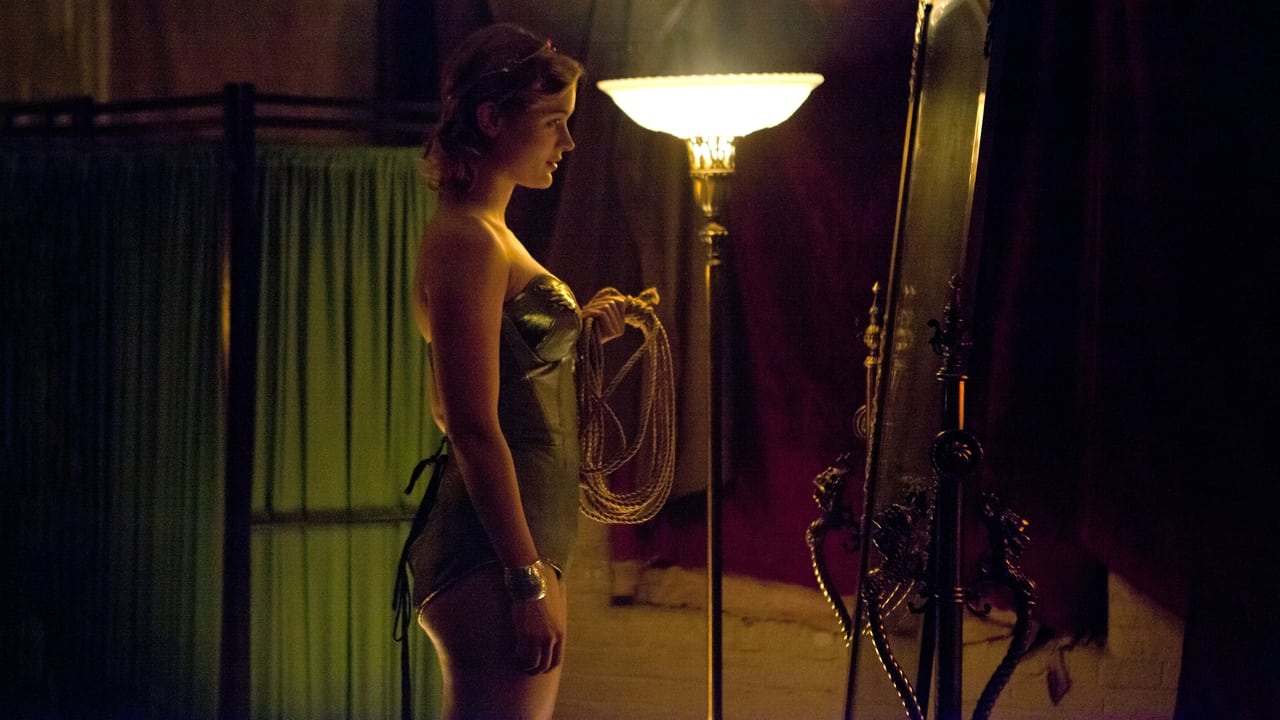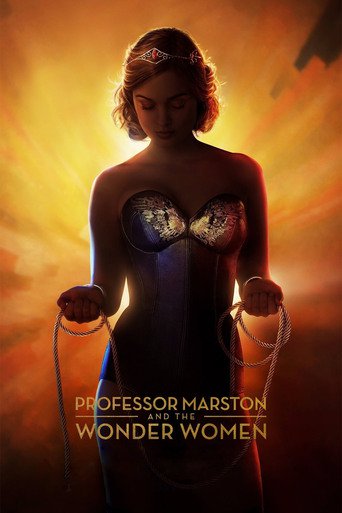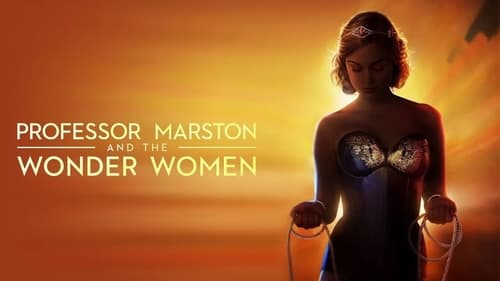



Simply A Masterpiece
What a freaking movie. So many twists and turns. Absolutely intense from start to finish.
View MoreThis is a coming of age storyline that you've seen in one form or another for decades. It takes a truly unique voice to make yet another one worth watching.
View MoreThe best films of this genre always show a path and provide a takeaway for being a better person.
View MoreWhen I compared today's Wonder Woman (made globally-famous by the incredible Gal Gadot) with the one I knew back in the early 1960's and noted the vast difference, I didn't know that there was an "original" that was even more different. That is, not until I saw "Professor Marston and the Wonder Woman", a bio-pic that records an interesting piece of pop culture history. The narrative structure is all too familiar: an interview and/or interrogation in 1945 during which the protagonist's responses become catalysts to flashbacks. Here, specifically, is Professor William Moulton Marston (Luke Evans) facing children's book expert Josette Frank's (Connie Britton), defending "Wonder Woman", his creation for DC Comics. The original version of Wonder Woman was condemned for its proliferation of BDSM, hence outrageously inappropriate for its target audience, children and young adults. Embedded in the flashback, the movie is in two distinct halves. The first half traces the trajectory of the initial encounter and subsequent development of the polyamory threesome. The second half takes up the title story of the creation of Wonder Woman. The flashback starts with 1928 at Harvard where the psychology profession is teaching and conducting researches, assisted by his brilliant wife Elizabeth (Rebecca Hall), whose only obstacle against becoming his equal (or even superior) is that her being a woman. They notice a very attractive student Olive Byrne (Bella Heathcote). "Her beauty is her albatross" Elizabeth nonchalantly comments. Before they decide to hire Olive as an assistant, Elizabeth declares to her husband she bears no "sexual jealousy", only "professional jealousy". Yet, upon meeting Olive, she loses no time in uttering "If you f*** my husband I'll kill you!" In explanation to Olive, William describes his wife as "neurotic, compulsive, grade A bitch". The somewhat eccentric couple soon realize that despite her mild manners and easy disposition, Olive is descended from "two most famous woman radicals" (mother and aunt). As well, Olive's quiet determination soon wins them over, to treat her more like an equal, temperamentally if not intellectually. Olive on the other hand finds out more about the Marston couple, that they had been childhood sweethearts. When he finally proposed to her, in was in the middle of a heated debate they were having on Carl Jung's theory. Gradually, climaxing at the mid-point of the moving, culminating in a series of stylishly erotic montages with the too-obviously titled song "Feeling good" as background, the three of them cement their relationship. There is a lesser subplot, about Marston's invention of the lie-detector. Purportedly, the facts are essentially correct. The device, however, is overused in the movie as a vehicle that triggers the protagonists' recognition of their true feelings towards one another. The second half has two main themes. The first is the expected hostility from whatever neighborhood they try to settle in, against their somewhat unorthodox "family" (they now have three offspring, two from Olive and one from Elizabeth). The other is the creation of Wonder Woman, inspired by the beauty of Olive and the very different psychological strengths of both women. The controversy of BDSM (both evolving through the comic character and their real life), as depicted in the movie, is essentially BD and very little SM except for the mild ceremonial spanking very early on in Olive's sorority pledging. The well-hidden spectators, the Marston couple, are obviously aroused (particularly Elizabeth). As the movie is based on true events, there is a limit to how far dramatization (at time melodramatization) can go: vicissitudes, conflicts, illness, reconciliation. At the end, details of the lives of the three protagonists was disseminated in written captions prior to the ending credit. Hall and Heathcote both give good performances, particularly when watched together, in the contrast between the persona of these two women. There is one scene however they have difficulty with - the reconciliation scene at the end, which come across as a little awkward. But the problem is probably more with the script than with anything else. Evans, while not displaying any glaring flaw, is generally out-shined by his two co-stars.
View MoreThe kinky sex stuff and the piggybacking on the success of the superhero movie "Wonder Woman" (2017) deservedly draw much of the attention for this, "Professor Marston and the Wonder Women," which was controversially advertised as the true story behind the creation of the Wonder Woman comic books, but they're also part of its playing with ideas of reality and fiction and the role of deception and fantasy in both worlds.Almost every layer of the movie and even the outer-world of it, in our world, is about these ideas. There's the concealment or lack thereof of a polyamorous relationship, bondage and role-play sex, the ideals versus the reality of the politics of sexual and gender rights and roles, the use and confusion of sex in psychology and the spread of ideas, including in the creation of a fictional comic book supposedly inspired by real things. There's the invention and use of the polygraph, which is usually presented in media as an effective lie detector, but which in reality is quite faulty and often inadmissible in court. The straps of the device in the movie recall the ropes used in the bondage role play by the trio, which in turn become Wonder Woman's Lasso of Truth.Quite a few ironies manifest from all of this layering, too. There's the daughter and niece of radical feminists and proponents of birth control but raised by nuns who ends up a homemaker after an unplanned pregnancy from a married man. There's the social scientists whose objectivity is compromised by their sexual desires, their ideas repackaged in picture books sold to children. And so on--even the fictional movie itself sold as "based on a true story," aimed to capture some of the success of the comic-book movie and itself criticized as being untrue.I like these kinds of movies largely because their analogous to a fundamental dichotomy in cinema between being a neutral recorder of reality and a subjective instrument of illusion. My main complaint with this one is that it largely bypasses this issue in its own presentation, as yet another "based on a true story" movie, rather than examine the tension between truth and fantasy. It does this fairly well with the comics within, but not with film itself. Had it done so, presenting itself as part fantasy rather than a straight "true story," I think it also could've helped with the production's defense against criticisms that it plays loose with the facts of the historical people it depicts. The movie's plot device of Dr. Marston narrating the movie via his interrogation, indeed, offered an opportunity for an unreliable narrator, but I suspect the filmmakers were, instead, mostly ripping off the structure of other movies, such as "The Imitation Game" (2014) (although the interview plot goes much further back to, at least, the more-complex "Citizen Kane" (1941)). Yet, even the movie's supposed failures, whether in cliché dramatics (the interrogation, a fist fight, burning books, etc.), truthiness, or at the box office, are interesting because they're part of the deception and fantasy, within the movie and without.
View MoreNear the end of the film Marston writes "SUBMISSION" on the board. When he underlines it, the "O" is in different writing.
View MoreThe story of psychologist William Moulton Marston, and his polyamorous relationship with his wife and their mistress who would inspire his creation of the superheroine, Wonder Woman. Despite solid perfomances from it's talented cast Angela Robinson's Professor Marston and the Wonder Women is an epic fail of laughable bad dialogue with an 80% of it being all sexual but also a romance between 3 people that was kind all over the place. It's amazing that the 40's Wonder Woman was all that into bondage and stuff well thank god for Gal Gadot's take on Wonder Woman being all powerful and all little sexual. (4/10)
View More